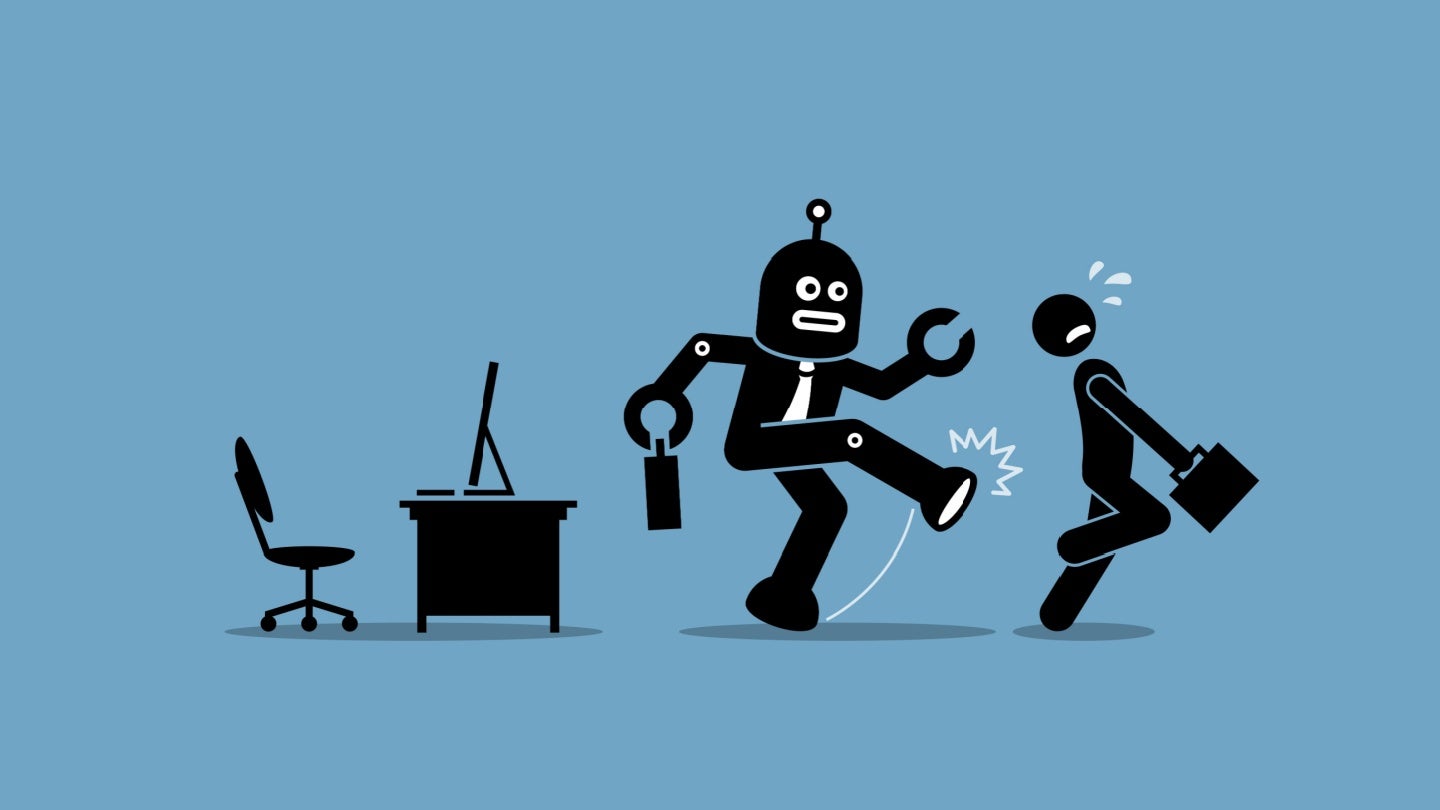Once only a topic for academic institutions and R&D labs, artificial intelligence (AI) has now become part of everyday life.
GlobalData forecasts that the global AI market will grow at a striking compound annual growth rate of 39% between 2023 and 2030, to reach $1trn by 2030.
The promise of AI has attracted the interest of many businesses as, on paper, they can use it to boost efficiency and productivity while reducing costs. Thus, companies are increasingly trying to implement it in their operations.
But is AI really aiding productivity in the workplace? Upwork Research Institute’s recent global study helped shed some light on this question when it interviewed 2,500 global C-suite executives, employees, and freelancers.
Upwork says that AI is not helping employees
The study found that 96% of C-level executives believe that AI will increase productivity. However, it also revealed that 77% of employees feel that AI increases their tasks and hinders their productivity.
39% of employees stated that checking and editing AI-created content takes a considerable amount of their time, while 23% stated that learning how to use AI tools is time-consuming. 21% of employees also highlighted that their tasks increased because of AI. Furthermore, 47% of employees do not have any idea about how to meet managers’ AI productivity expectations.
These results indicate that companies and employees have broadly failed to unlock AI’s potential. But why?
AI is still a new technology
AI is a novel, progressive, and disruptive technology. Therefore, companies and employees must invest time and effort to gain more expertise in it.
According to GlobalData’s Market Readiness: Adoption Level of Artificial Intelligence survey, almost half of respondents stated that their organisations have either low adoption or very low adoption of AI technologies. Only 21% said that their organisations have high adoption or very high adoption.
Upwork’s study also underlines that only 17% of employees feel that they are highly skilled and comfortable using AI tools. This might indicate why AI is increasing employees’ workload rather than increasing productivity as expected. Once employees become more AI-savvy, AI will make more of a positive impact on productivity.
GlobalData similarly highlights that there is a shortage of AI talent, which prevents companies from fully realising AI initiatives. Consequently, some companies started to take action to increase AI literacy. For instance, Meta and Microsoft provide free AI training opportunities to their employees and the public. Some companies create tools and libraries that will assist non-AI experts to use AI in their applications better. Many companies collaborate with universities and try to hire students straight after graduation to fulfill their AI goals.
Significant impact on businesses
Dubbed “a force of creative destruction” by GlobalData, generative AI is arguably the most popular area of AI. It can make old business models obsolete while creating new ones.
According to GlobalData’s Artificial Intelligence Executive Briefing, generative AI’s employment impact is limited to collaboration, productivity enhancements, and new roles. But this impact will increase. In 10 to 30 years, generative AI will be capable of specific role and team replacement, and new roles. In 30 to 100 years, it will be advanced enough for broad role replacement.
GlobalData even argues that countries that become leaders in AI will be at the forefront of the Fourth Industrial Revolution.
As AI adoption levels and literacy increase, employees will make better use of AI. This will help employers to set the right productivity expectations and allow employees to manage and fulfil these expectations.








